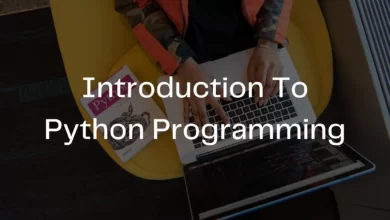A Basic Guide To Keywords In Python

Table of Contents
What are Keywords in Python?
The keywords are some predefined and reserved words in python that have special meanings. Keywords are used to define the syntax of the coding.
The keyword cannot be used as an identifier, function, or variable name. All the keywords in python are written in lower case except True and False.
There are 33 keywords in Python 3 let’s go through all of them one by one.
Keywords in Python
1. and
This is a logical operator it returns true if both the operands are true else return false.
2. Or
This is also a logical operator it returns true if anyone’s operand is true else return false.
3. not
This is again a logical operator it returns True if the operand is false else return false.
4. if
This is used to make a conditional statement.
5. elif
The elif statement is executed if the previous conditions were not true.
6. else
Else is used with if and elif conditional statement the else block is executed if the given condition is not true
7.for
This is created for a loop.
8. while
This keyword is used to create a while loop.
9. break
This is used to terminate the loop.
10.as
This is used to create an alternative.
11. def
It helps us to define functions.
12.lambda
It is used to define the anonymous function.
13.pass
This is a null statement that means it will do nothing.
14.return
It will return a value and exit the function.
15. True
This is a boolean value.
16. False
This is also a boolean value.
17. try
It makes a try-except statement.
18. with
The with keyword is used to simplify exception handling.
19.assert
This function is used for debugging purposes. Usually used to check the correctness of code.
20.class
It helps us to define a class.
21.continue
It continues to the next iteration of a loop
22.del
It deletes a reference to an object.
23. except
Used with exceptions, what to do when an exception occurs
24. finally
Finally is used with exceptions, a block of code that will be executed no matter if there is an exception or not.
25. global
This declares a global variable.
26. from
The from is used to import specific parts of any module.
27. import
This is used to import a module.
28. in
It’s used to check if a value is present in a list, tuple, etc, or not.
29.is
This is used to check if the two variables are equal or not.
30. raise
This raises an exception.
31. yield
It ends a function and returns a generator.
32. nonlocal
It’s declared a non-local variable.
33. None
This is a special constant used to denote a null value or avoid. It’s important to remember, 0, any empty container (e.g empty list) do not compute to None.
Conclusion
Python is a great programming language for beginners. With its core syntax being easy to learn, it helps users write simple and clean code. Additionally, the wide array of libraries available makes Python an ideal candidate for both small and large projects alike. If you want to learn more about Python or start writing some code with it, head over to our blog today! If you have a project that you’d like me to work on, please let us know on Telegram.






